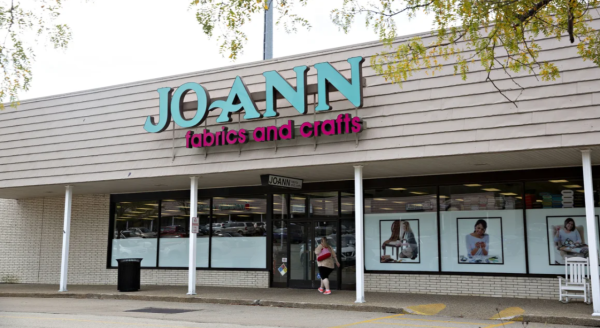S.A.L.S.A Discusses USHLI Conference
February 26, 2016
Members of the Spanish and Latin American student association attended the 34th annual U.S. Hispanic Leadership Institute (USHLI) in Chicago last weekend for the first time since 2013.
According to S.A.L.S.A. President Natalia Roman, there hasn’t been enough students interested to go to the USHLI conference the last two years. Since membership numbers are at an all-time high, the organization was able to send 10 students to this year’s conference.
Attendees had the opportunity to network with high school students, college students, and professionals to talk about Hispanic and Latino culture in the United States.
“I can tell you in three years since I’ve been in the United States, I’ve never seen so many Latinos in one room. There were over 500 student leaders, professional leaders, people who were successful in the field that were all Latino,” Roman said. “It was exciting to see a change from being at a predominantly white institution to be where everyone looks like you and understands you.”
Students claim to be “recharged” with enthusiasm and inspiration to be the best version of themselves after listening to Latino leaders of all ages speak on their success.
“Seeing that there are so many Latinos and Hispanic people that are working hard for what they want made me feel like I have a future that I can look for,” Cristina Torres, programming chair for S.A.L.S.A. said. “Being there are seeing these people that are like me, makes me feel like I can grow. Being a freshman it makes me feel like ‘OK, I am on the right path, I can keep going and get somewhere.”
Although the conference is centered on Latino culture, not all attendees were directly from a Latino background. Three of the attendees from Kent State were not from Hispanic or Latino background.
“I was worried when we first checked in because I was looking around and there was nobody else (like me),” Amanda Michalak, public relations chair for S.A.L.S.A. said. “Once I got into the workshops and started talking about what it means for me to be there as opposed to people who do come from that background, nobody looked sideways at me. A lot of people were interested in finding out why I was there which was really awesome.”
Students attended sessions with professionals and networking events with other leaders. One of the sessions titled Sin Fronteras (Without Borders): Building Multi-Cultural Alliances and Partnerships was about identifying as more than one culture, which was the case of attendee Victor Benton.
“Dr. Houston’s session was the most beneficial for me because I identify with her in a low of ways. She is an educator and an African American born in Texas, but because of the way she was brought up she has a lot of Mexican influence. She was very connected to the Mexican culture in the same way that I am connected to the Puerto Rican culture,” Benton said. “It stood out to me when she said ‘I’m not biracial, I’m bicultural’”
Freshman S.AL.S.A. members Cristina Torres and Angie Cotto-Ramos favored a session about author Soledad O’Brien’s book titled I am Latino in America. O’Brien made USHLI a stop on her national book tour to talk about the impact of the Latino population in the United States.
“There were a lot of statistics. Being Latina, and knowing that I’m a minority, plus I’m aspiring to be a doctor, it makes you feel like you have to make a change for yourself and for your community as well. That’s what she pointed out,” Torres said. “You have a voice, you don’t always think it will count, but in this case it can.”
Students also gained political perspective about the minority vote from USHLI which stirred members to take action.
“One of the key takeaways is that we need to make sure our Latino population is voting,” Roman said. “There are 27 million Latinos in the United States who are eligible to vote but only 12 million vote. That’s less than half.
“We are told that the system doesn’t work in our favor so what’s the point in engaging with it, but the thing is that the primary argument against that is that Latinos who immigrate here are looking for a democratic process and opportunity to be engaged in politics. A lot of them aren’t aware of what voter registrations are, what the Electoral College is, how their vote can be impactful because we are taught that it doesn’t matter. We are the minority anyway, but it’s not true. There is power in numbers.”
After gaining that insight from the conference, S.A.L.S.A. held an informational meeting last night, Feb. 25 about the power of the minority vote.




















